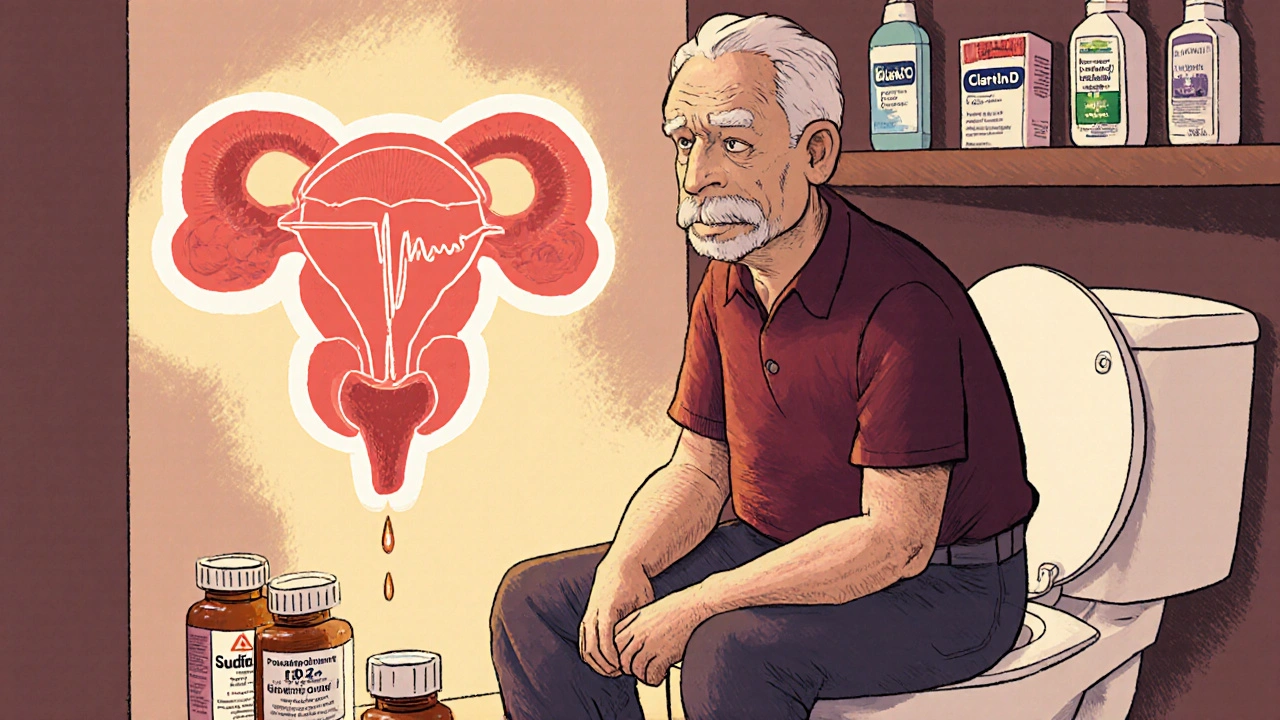Pseudoephedrine: What It Is, How It Works, and What You Need to Know
When you’re stuffed up from a cold or allergies, pseudoephedrine, a stimulant-type decongestant that shrinks swollen blood vessels in the nose to relieve congestion. Also known as Sudafed, it’s one of the most effective over-the-counter remedies for stuffy noses—but it’s not as simple as grabbing a bottle off the shelf. Unlike regular cold meds, pseudoephedrine is kept behind the pharmacy counter because of its role in making illegal drugs like methamphetamine. That’s why you need to show ID and sign a logbook when you buy it.
Pseudoephedrine works by tightening blood vessels in your nasal passages. Less swelling means easier breathing. It’s faster and stronger than phenylephrine, the alternative you’ll find on many store shelves. But it’s not for everyone. If you have high blood pressure, heart disease, or an overactive thyroid, it can raise your risk of stroke or heart attack. Even if you’re healthy, it can make you jittery, keep you awake, or cause a rapid heartbeat. That’s why some people switch to saline sprays, humidifiers, or antihistamines like loratadine for milder symptoms.
There’s a reason you see so many posts here about medication safety, how to avoid harmful interactions and side effects from common drugs, FDA drug safety alerts, official warnings about recalls and dangerous side effects, and compounded medications, custom formulas made for patients who can’t tolerate standard pills. Pseudoephedrine sits right in the middle of all of them. It’s a drug that works—but only if used correctly. Some people mix it with other cold meds and accidentally overdose on decongestants. Others don’t realize it can cancel out their blood pressure pills. And if you’re buying it online from an unregulated pharmacy, you might not even be getting the real thing.
What you’ll find below are real, practical guides on how to use medications like pseudoephedrine safely, how to spot when something’s wrong, and what alternatives actually work. From how to read labels to understanding why some drugs are restricted, these posts give you the tools to make smarter choices without needing a pharmacy degree.

- 10 Comments
Men with enlarged prostates face serious urinary retention risks from common decongestants like pseudoephedrine. Learn which cold meds to avoid, safer alternatives, and what to do if you can't urinate.
